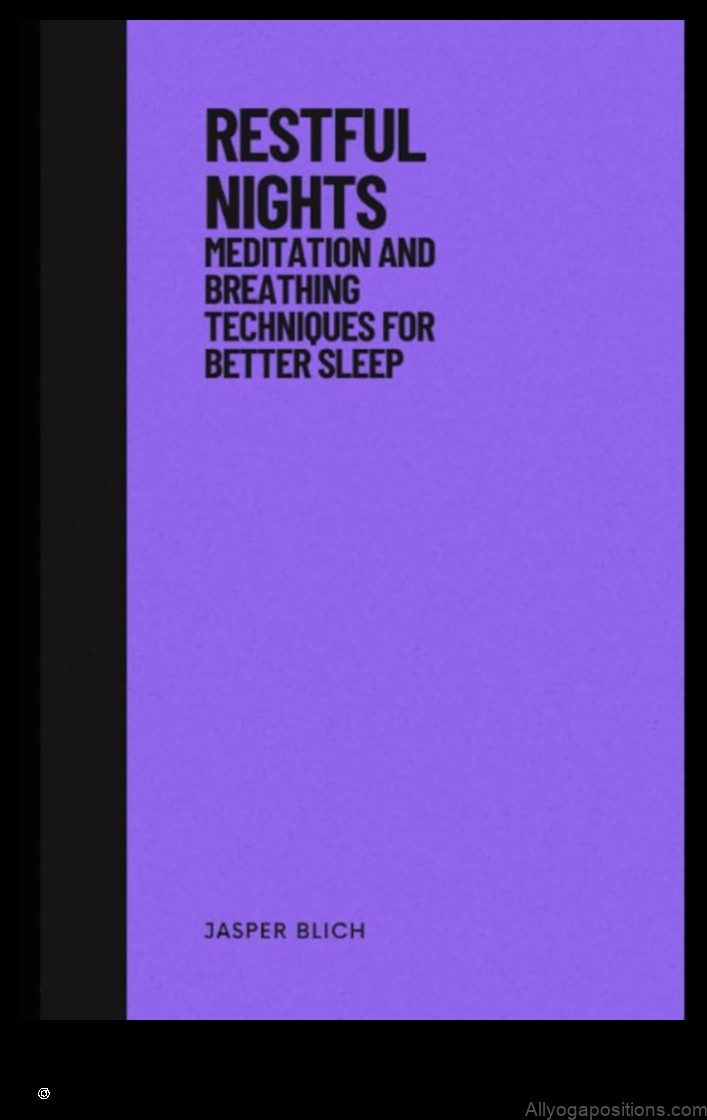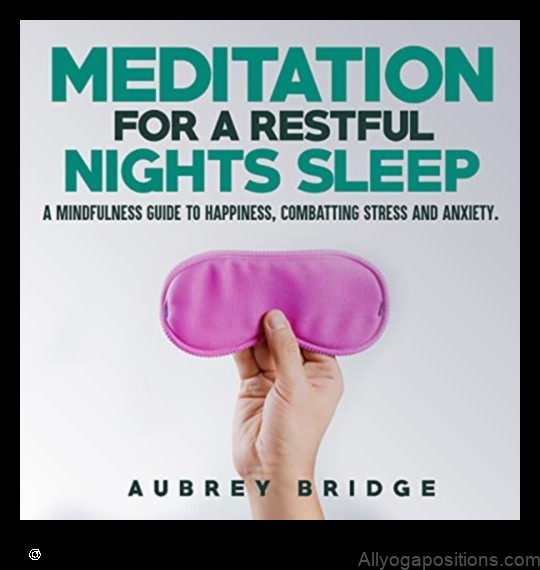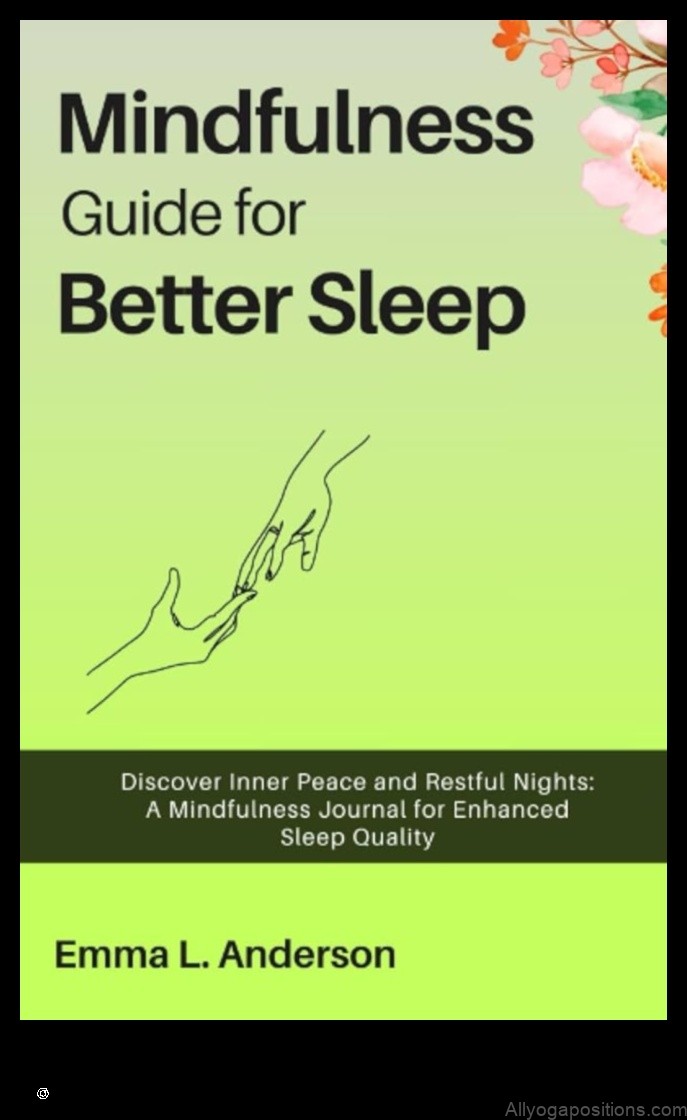
Meditation for Better Sleep: A Guide to Restful Nights
Introduction
Millions of people around the world struggle with sleep problems. Insomnia, or difficulty falling asleep or staying asleep, is one of the most common complaints in primary care. While there are many different causes of insomnia, stress and anxiety are often major contributing factors.
Meditation is a mind-body practice that has been shown to have a number of benefits for both physical and mental health. In recent years, there has been growing interest in the use of meditation for improving sleep. Studies have shown that meditation can help to reduce stress and anxiety, improve sleep quality, and promote relaxation.
This guide will provide you with an overview of the benefits of meditation for sleep, as well as tips on how to incorporate meditation into your daily routine to improve your sleep quality.
What is meditation?
Meditation is a mind-body practice that involves focusing your attention on a single object, thought, or sensation. There are many different types of meditation, but all of them share the common goal of training your mind to be more focused and present.
Meditation has been practiced for thousands of years in various cultures around the world. It is often associated with Buddhism and Hinduism, but it is not a religious practice. Anyone can benefit from meditation, regardless of their religious beliefs or spiritual practices.
Benefits of meditation for sleep
There are a number of studies that have shown that meditation can help to improve sleep quality. In one study, participants who practiced mindfulness meditation for eight weeks reported improvements in sleep quality, including falling asleep faster, staying asleep longer, and waking up feeling refreshed.
Another study found that participants who practiced yoga nidra, a type of meditation that involves deep relaxation, fell asleep faster and had fewer awakenings during the night than participants who did not practice yoga nidra.
The benefits of meditation for sleep are likely due to the fact that meditation helps to reduce stress and anxiety. When you are stressed or anxious, your body produces hormones such as cortisol and adrenaline, which can make it difficult to fall asleep. Meditation can help to lower these hormones and promote relaxation, which can make it easier to fall asleep and stay asleep.
How to meditate for sleep
There are many different ways to meditate for sleep. The best way to find a meditation practice that works for you is to experiment with different techniques and see what feels most comfortable.
Some of the most popular meditation techniques for sleep include:
- Mindfulness meditation
- Body scan meditation
- Yoga nidra
- Guided meditation
If you are new to meditation, it is a good idea to start with a simple practice, such as mindfulness meditation. Mindfulness meditation involves focusing your attention on your breath or on a single object, such as a candle flame.
To practice mindfulness meditation for sleep, sit in a comfortable position and close your eyes. Focus your attention on your breath as it flows in and out of your body. If your mind wanders, gently bring your attention back to your breath. Continue to practice mindfulness meditation for 5-10 minutes each day.
As you become more experienced with meditation, you may want to try other techniques, such as body scan meditation or yoga nidra. Body scan meditation involves focusing your attention on each part of your body, from your head to your toes. Yoga nidra is a type of deep relaxation that involves lying down and following a guided meditation.
Common mistakes to avoid
When you are first starting to meditate for sleep, it is important to avoid making some common mistakes. These mistakes can make it difficult to relax and fall asleep.
Some of the most common mistakes to avoid include:
- Trying to force yourself to meditate
- Meditating for too long
Feature Answer Meditation for sleep Meditation can help you fall asleep faster, stay asleep longer, and wake up feeling refreshed. Sleep meditation Sleep meditation is a type of meditation that is specifically designed to help you fall asleep. Insomnia Meditation can help to improve sleep quality and reduce the symptoms of insomnia. Relaxation Meditation can help you to relax and reduce stress, which can improve your sleep quality. Stress management Meditation can help you to manage stress and anxiety, which can improve your sleep quality. 
II. What is meditation?
Meditation is a mind-body practice that involves focusing one’s attention on a particular object, thought, or activity. It has been practiced for centuries in various cultures around the world, and there is now a growing body of scientific evidence to support its benefits for both physical and mental health.
When you meditate, you are essentially training your mind to be more focused and present. This can help to reduce stress, anxiety, and depression, and improve your mood, sleep, and overall well-being.
There are many different types of meditation, and the best type for you will depend on your individual needs and preferences. Some of the most popular types of meditation include:
- Mindfulness meditation
- Transcendental meditation
- Vipassana meditation
- Zen meditation
If you are new to meditation, it is a good idea to start with a simple practice, such as mindfulness meditation. This involves sitting in a comfortable position, closing your eyes, and focusing on your breath. As you breathe in, say to yourself, “I am breathing in.” As you breathe out, say to yourself, “I am breathing out.” Continue to do this for a few minutes, or for as long as you like.
With practice, you will be able to focus your mind for longer periods of time, and you will begin to experience the benefits of meditation.
III. Benefits of meditation for sleep
Meditation has been shown to have a number of benefits for sleep, including:
- Reduced stress and anxiety
- Improved mood
- Increased relaxation
- Improved sleep quality
- Increased duration of sleep
- Reduced likelihood of waking up during the night
These benefits are due to the fact that meditation helps to calm the mind and body, which can make it easier to fall asleep and stay asleep. Meditation can also help to improve sleep quality by reducing the amount of time spent in REM sleep (rapid eye movement sleep), which is the stage of sleep associated with dreaming.
In addition, meditation can help to improve sleep quality by reducing the amount of time spent in deep sleep, which is the stage of sleep associated with rest and recovery.
IV. How to meditate for sleep
Meditation for sleep is a simple yet effective way to improve your sleep quality. It can help you to fall asleep faster, stay asleep longer, and wake up feeling refreshed.
There are many different ways to meditate for sleep, but the basic steps are the same.
1. Find a comfortable position to sit or lie in.
2. Close your eyes and relax your body.
3. Focus on your breath.
4. As thoughts arise, let them go and return your focus to your breath.
5. Continue for 10-20 minutes or until you feel sleepy.
If you find it difficult to focus on your breath, you can try using a mantra or visualization.
A mantra is a word or phrase that you repeat silently to yourself. Visualization is a technique where you create a mental image of a peaceful or relaxing scene.
Meditation for sleep is most effective when done in a quiet, dark room. However, if you can’t find a quiet place to meditate, you can try using earplugs or noise-canceling headphones.
You can also meditate for sleep during the day if you find that it helps you to relax and fall asleep at night.
Meditation for sleep is a safe and natural way to improve your sleep quality. It is not a substitute for medical treatment, but it can be a helpful addition to your sleep routine.

V. Common mistakes to avoid
When it comes to meditation for sleep, there are a few common mistakes that people make that can prevent them from getting the full benefits. Here are a few tips to avoid these mistakes:
- Don’t force yourself to meditate. If you’re not feeling tired, don’t try to force yourself to meditate. This will only make it harder to relax and fall asleep.
- Don’t try to meditate for too long. When you’re first starting out, it’s best to meditate for short periods of time, such as 5-10 minutes. As you get more comfortable with meditation, you can gradually increase the length of your sessions.
- Don’t be afraid to move around. Some people find that they need to move around a bit in order to relax and fall asleep. If this is the case for you, don’t be afraid to get up and move around during your meditation session.
- Don’t expect immediate results. Meditation takes practice. Don’t expect to be able to fall asleep immediately after starting to meditate. Just keep practicing and you will eventually see results.
6. Tips for beginners
If you’re new to meditation, here are a few tips to help you get started:
- Find a quiet place where you won’t be disturbed.
- Sit in a comfortable position, with your back straight and your feet flat on the floor.
- Close your eyes and focus on your breath.
- Breathe in slowly and deeply through your nose, and exhale slowly and completely through your mouth.
- As you breathe, let your thoughts go. Don’t try to control your thoughts, just let them come and go.
- If your mind wanders, gently bring your attention back to your breath.
- Continue to meditate for as long as you like.
It’s important to be patient with yourself when you’re first starting to meditate. It may take some time to learn how to clear your mind and focus on your breath. Don’t get discouraged if you find your mind wandering during meditation. Just gently bring your attention back to your breath and continue to practice.
VII. Benefits of meditation for other aspects of your life
In addition to improving sleep, meditation has been shown to have a number of other benefits for your overall health and well-being. These include:
- Reduced stress and anxiety
- Improved mood
- Increased energy levels
- Improved focus and concentration
- Enhanced creativity
- Improved relationships
- Increased self-awareness
- Greater sense of purpose
If you are interested in learning more about the benefits of meditation, there are a number of resources available online and in libraries. You can also find classes and workshops in your local community.
How to make meditation a part of your daily routine
Meditation is a powerful tool that can help you improve your sleep, reduce stress, and improve your overall well-being. However, it can be difficult to make time for meditation if you’re not used to it. Here are a few tips for making meditation a part of your daily routine:
- Start small. Don’t try to meditate for an hour every day if you’re not used to it. Start with just 5 or 10 minutes, and gradually increase the amount of time you meditate each day.
- Find a time that works for you. Some people prefer to meditate in the morning, while others prefer to meditate at night. Find a time that you’re likely to stick with and make it a regular part of your day.
- Make meditation a priority. Just like you would make time for going to the gym or eating healthy, you need to make time for meditation. If you’re not feeling motivated, try setting a reminder on your phone or calendar.
- Find a comfortable place to meditate. You can meditate anywhere, but you’ll be more comfortable if you find a place where you can relax and won’t be disturbed.
- Create a calming environment. Dim the lights, light a candle, or play some soothing music. Anything that helps you to relax and focus will be helpful.
- Wear comfortable clothing. You should be able to move around freely and easily while you’re meditating.
- Close your eyes and focus on your breath. Breathing exercises are a great way to relax and focus your mind.
- Let go of thoughts and distractions. When you notice your mind wandering, gently bring your attention back to your breath.
- Be patient. It takes time to develop a meditation practice. Don’t get discouraged if you don’t see results immediately. Just keep practicing and you’ll eventually start to see the benefits.
IX. Resources for learning more about meditation
There are many resources available to help you learn more about meditation. Here are a few of the best:
- Mindfulness.org is a great resource for learning about the basics of meditation. They offer free online courses, articles, and videos.
- Calm is a popular meditation app that offers guided meditations for sleep, stress, anxiety, and more.
- Headspace is another popular meditation app that offers a variety of guided meditations for different purposes.
- Dhamma.org is a website that offers free online meditation courses and resources.
- Lion’s Roar is a magazine that publishes articles about meditation, Buddhism, and mindfulness.
X. FAQ
Q: What are the benefits of meditation for sleep?
A: Meditation can help you fall asleep faster, stay asleep longer, and wake up feeling more refreshed. It can also reduce stress and anxiety, which can improve your sleep quality.
Q: How do I meditate for sleep?
A: There are many different ways to meditate for sleep. One simple method is to sit or lie in a comfortable position, close your eyes, and focus on your breath. As you breathe in, say to yourself, “I am breathing in.” As you breathe out, say to yourself, “I am breathing out.” Continue to do this for a few minutes, or for as long as you like.
Q: What are some common mistakes to avoid when meditating for sleep?
A: Some common mistakes to avoid when meditating for sleep include:
- Trying to force yourself to sleep.
- Meditating for too long.
- Meditating at the wrong time of day.
Table of Contents
Maybe You Like Them Too
- Yoga for Emotional Release Find Stillness in the Storm
- Yoga for Shin Splints 7 Poses to Help Relieve Discomfort
- Meditation and Mindful Breathing A Path to Relaxation and Inner Peace
- Yoga for Emotional Wellness Find Serenity and Balance
- Breathe Deeply The Art of Breathing and Meditation for a Calm Mind
